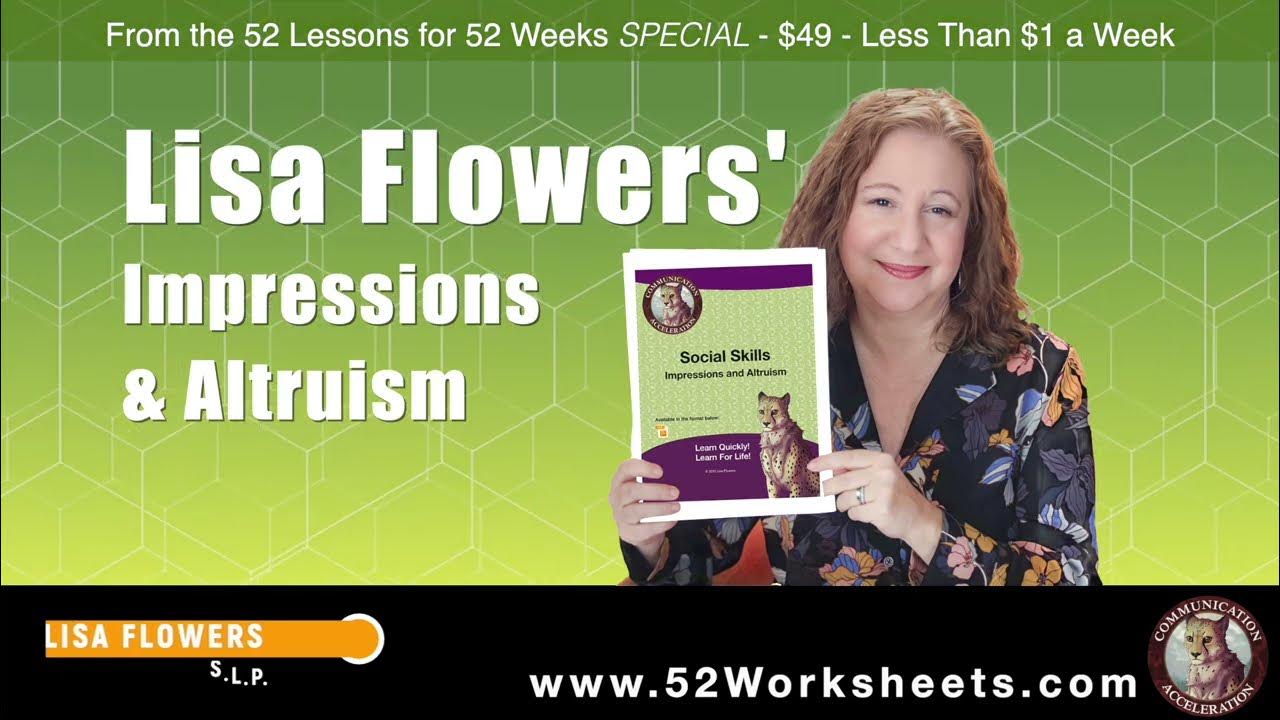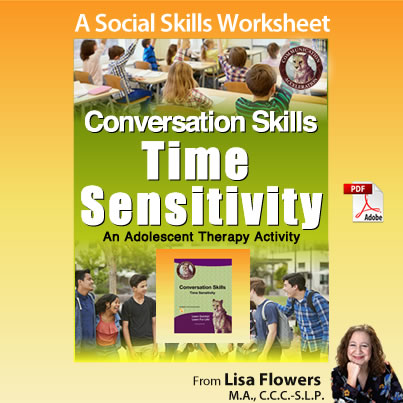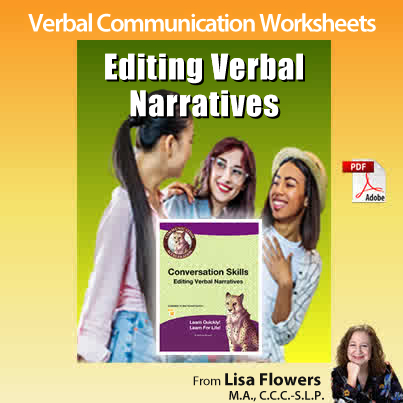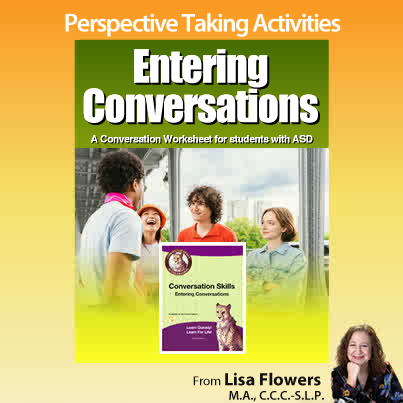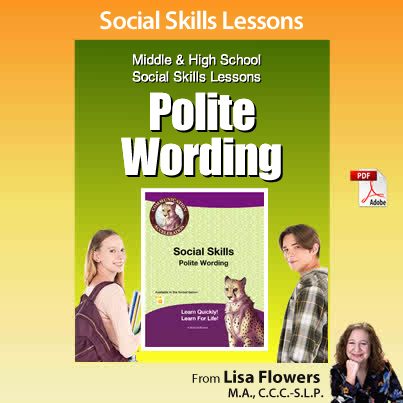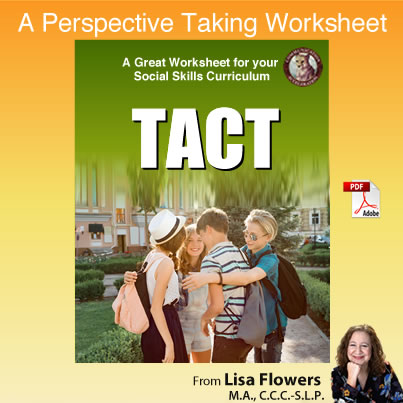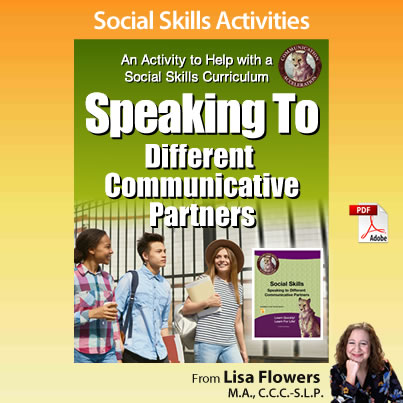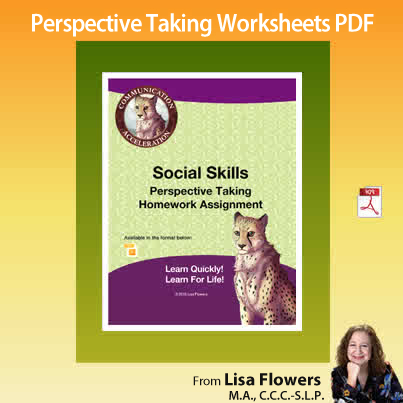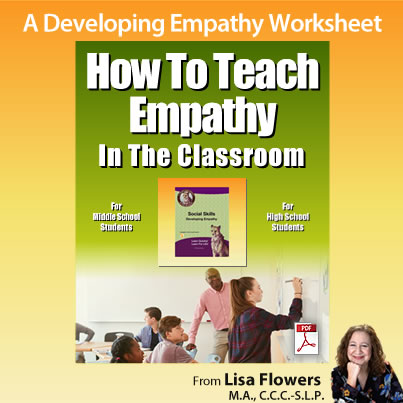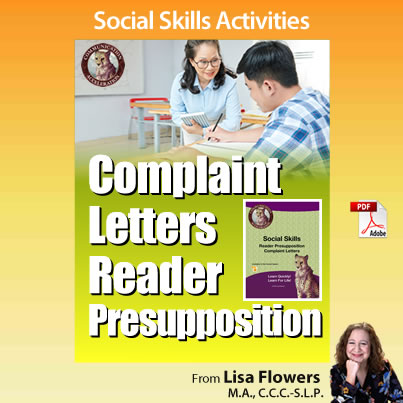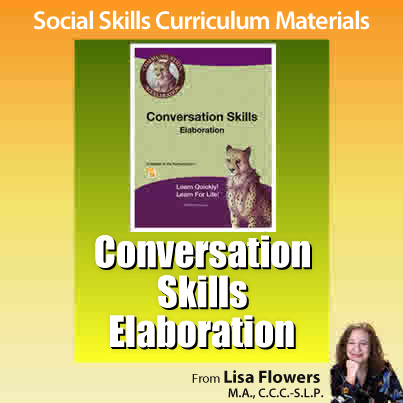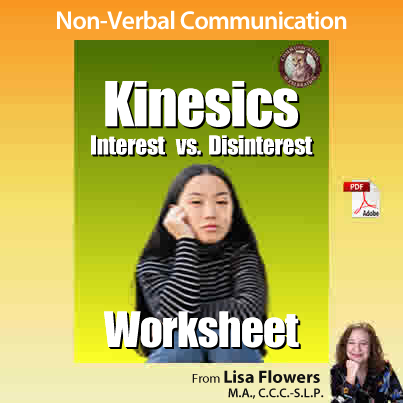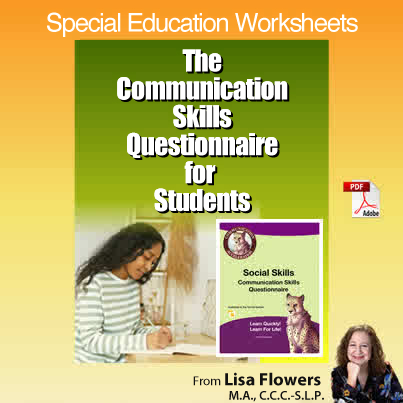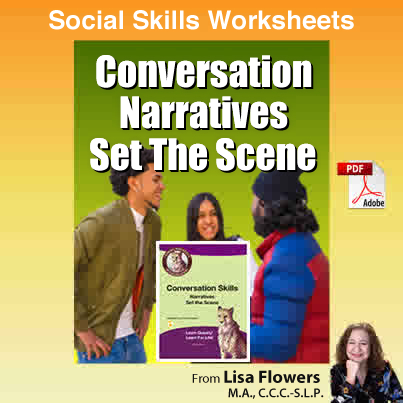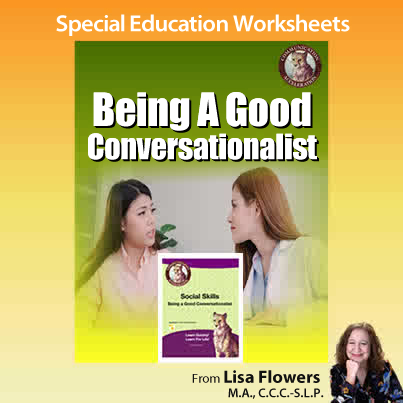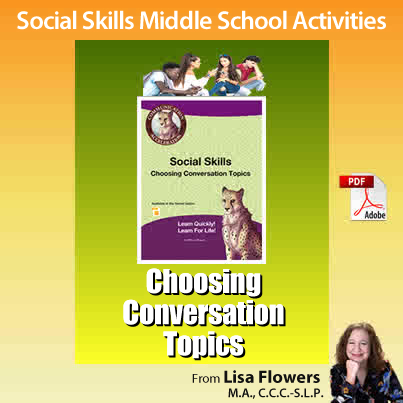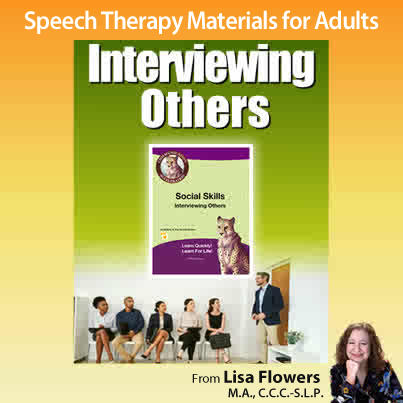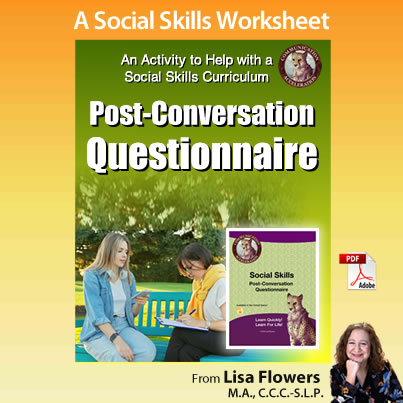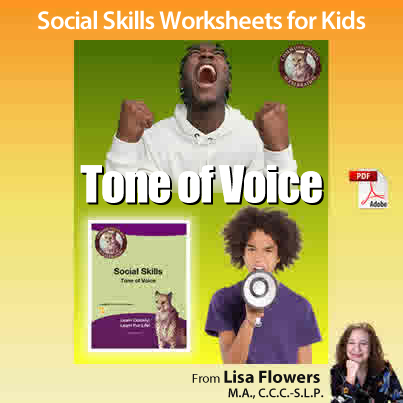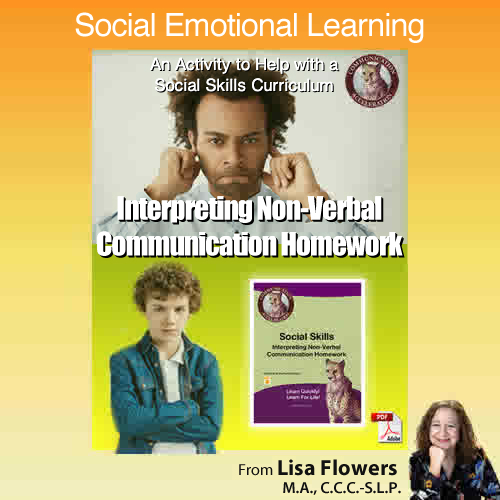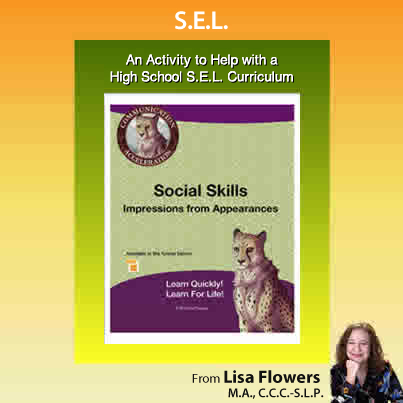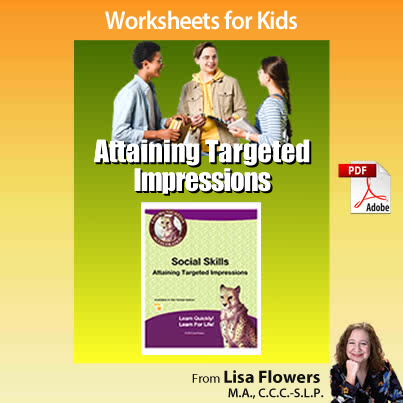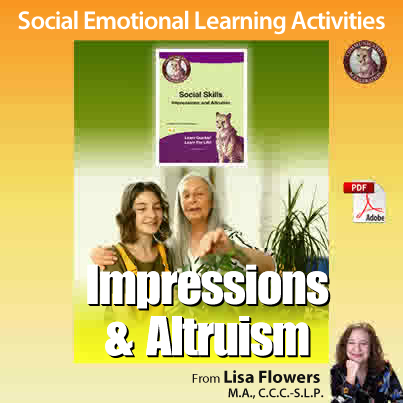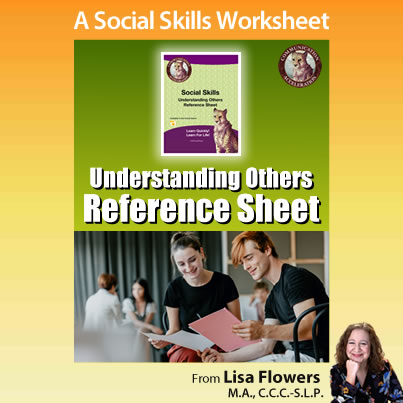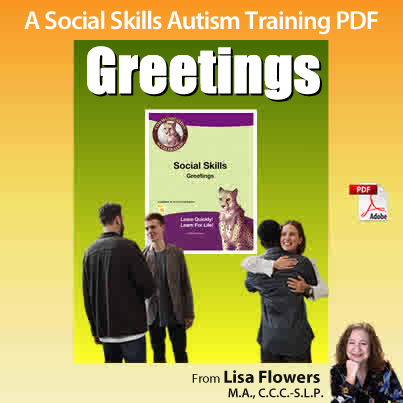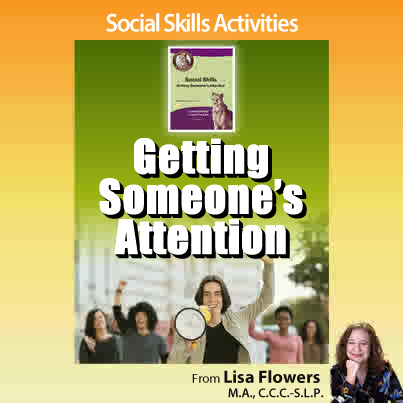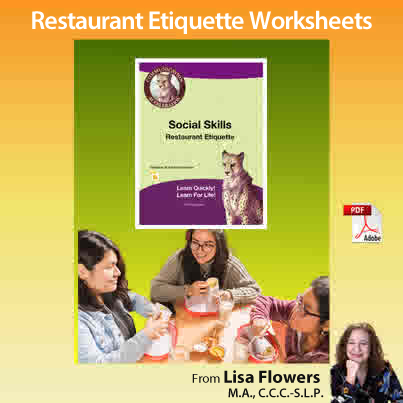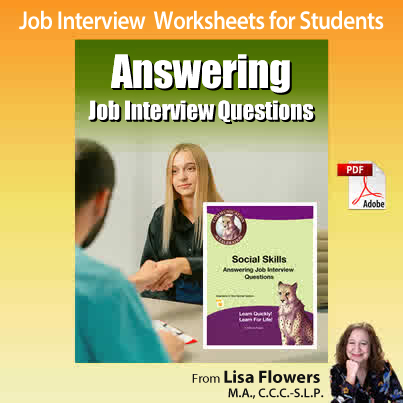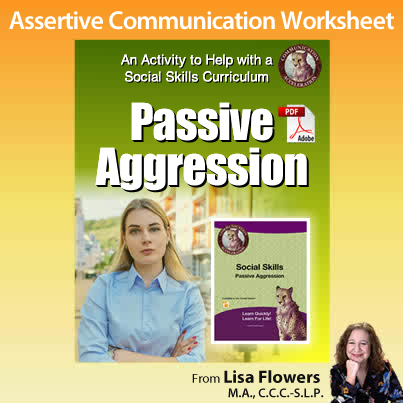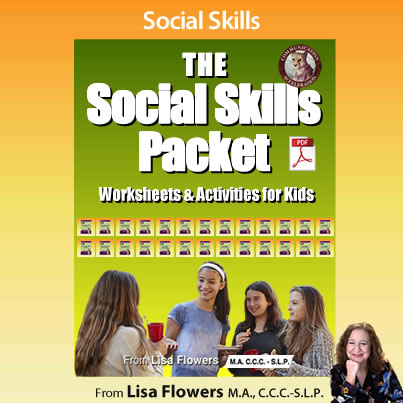Social Skills - Impressions and Altruism
Social Skills / Impressions and Altruism
Social Skills - Impressions and Altruism
Watch the video to learn more
Click here for video transcription and ADA compliant audio for the video above
Social Skills - Impressions and Altruism
This worksheet goes an extra step. It not only gets students to think about how what they say and do gives others impressions of them, but also how their words and actions affect others' feelings.
Social Skills - Impressions and Altruism
See the audio transcription below:
Welcome to my Impressions and Altruism worksheet. Check out this excerpt from the training video I did for the New York City Department of Education. The next activity is called Impressions and Altruism, and this takes it a step further because for this task the students also have to consider other people's feelings, not just are they getting the impression they want to give, but also, think about the other person, be altruistic. For this there are five different situations, and for each situation they roll a die, to see which of six different people they're going to be interacting with in that situation. So, let's look at one of the situations. You have a really bad sunburn and you are speaking with, one, a dermatologist at your appointment. So what does the student want to achieve if they have a really bad sunburn and they're speaking to a dermatologist at the appointment? Basically they want relief from the sunburn. This one is not so important as to what impression the dermatologist has of them, right? Because that doesn't really matter, the dermatologist's job is just to help them and relieve their pain. Number two, what if they have a really bad sunburn and they're speaking with a burn victim in the dermatologist's waiting room? Here they really have to think about the other person. How does that burn victim feel? So, for example we might discuss, well, should you be complaining about your bad sunburn aloud to your mom sitting next to you, probably not, right? Because that other person has it worse than you, so maybe keep your complaints to yourself. So, you can see how all these different variables really come into play, and students really have to tease out how what they say would affect the other person, how it would make the other person feel, how their actions have impacts, and so on: a lot of perspective taking. You could try using thought and speech bubbles with erasable markers like you can see, for this activity and for a lot of the activities, because this will make it clear to your students how your thoughts shouldn't always match what comes out of your mouth. You might have a thought and that's OK, but it doesn't necessarily mean you should say whatever is on your mind. Thanks for viewing my description of this worksheet. If you like what you've seen here, please click and subscribe to my channel. I'm not exactly sure what that means, but my web guy told me it's a thing!
Get Great Social Skills Worksheets to add to your Social Emotional Learning Curriculum!
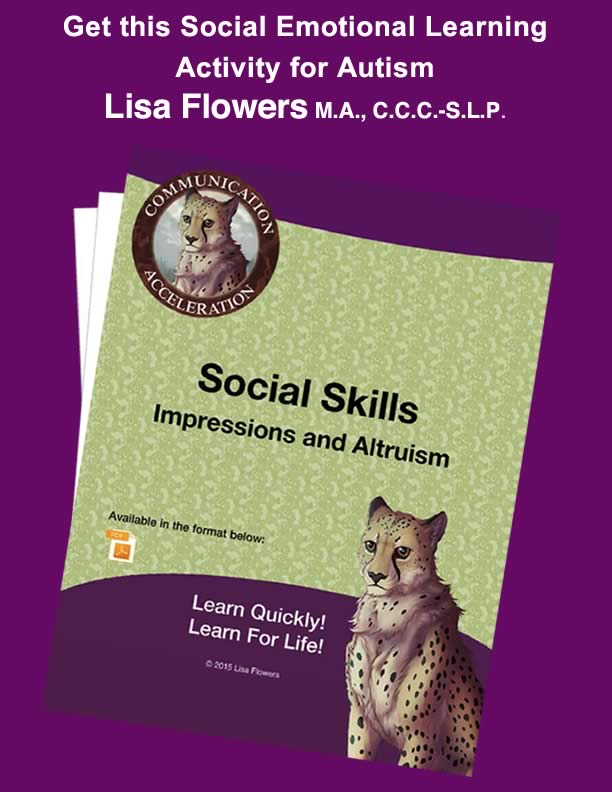
Social Skills - Impressions and Altruism
This activity is the natural progression from the Attaining Targeted Impressions activity, as it introduces the feelings of others to the impressions previously addressed.
In order for a student to begin modifying what they say and the actions they take to obtain a targeted impression, they must first understand the connection between actions, appearances, words, and impressions. They must also understand that kindness for people (and animals) is not only doing the right thing but is also in their self-interest. They inevitably will benefit in life from their kindness, as it will give those around them a good impression of them, which can yield comfortable social interactions with friends and strangers alike, friendships, professional dispositions and networking, and romantic relationships. Given five social interactions, students roll a die for each to see with whom they are interacting in the scenario. They then answer a handful of questions pertaining to what they can do or say so both they and the other participant can benefit. It is important to note that in some situations, what benefits the other person is less important, such as during a job interview or an appointment with a doctor. Through this activity, they will learn to identify the social-emotional needs of others (e.g., the desire to feel important) while acknowledging their own (e.g., how they wish to be perceived).
More Worksheets and Activities from the 52 Lessons Package
These social skills worksheets and activities for individuals with Autism and Social Pragmatic Communication Disorders target a variety of social skills, including the development of empathy, perspective taking, kinesics, listener/reader presupposition, and conversational skills.
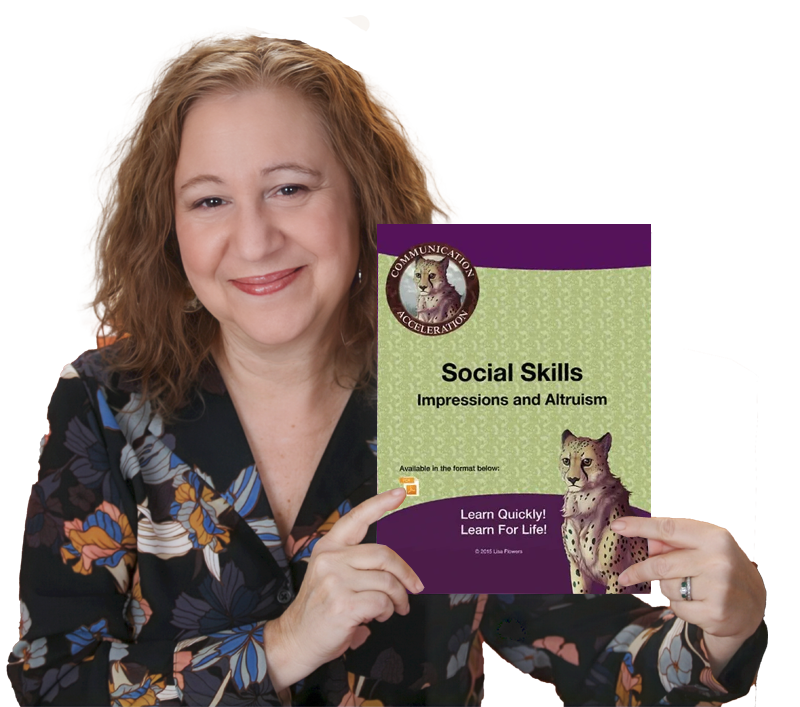

Search Another Way
Get Social Skills
Packet
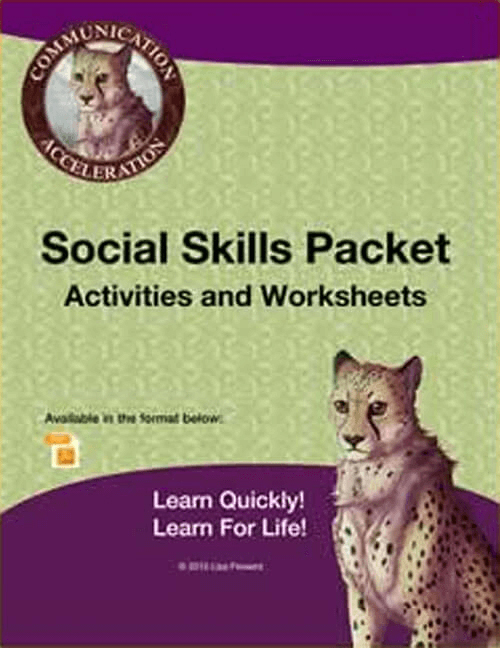
A collection of 28 social skills worksheets and activities that cover conversation skills, kinesics, perspective taking, development of empathy, and real-world communication.
Get 52 Lessons & Activities
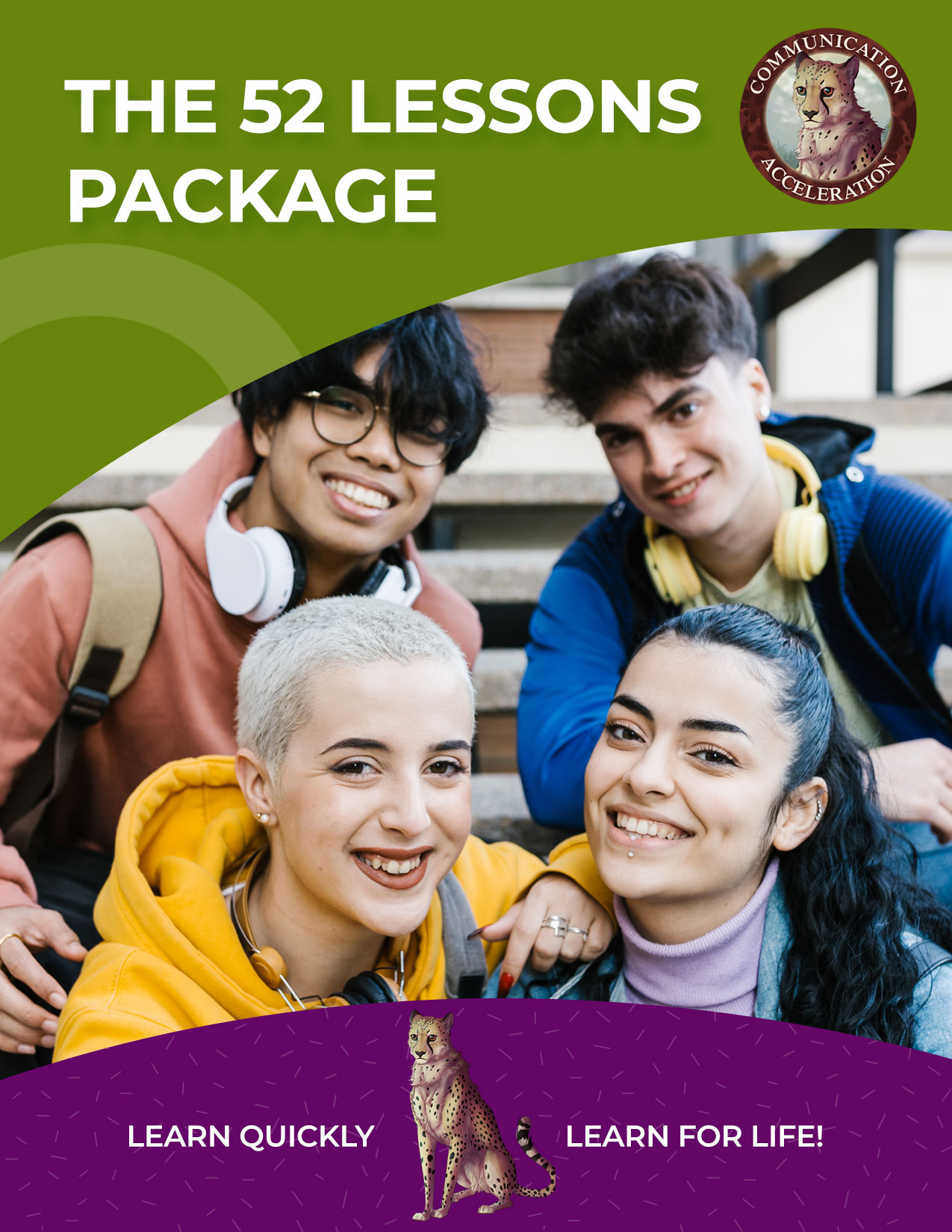
A collection of 52 language and communication worksheets and activities that cover a plethora of reading comprehension, writing, grammar, and social communication skills.
